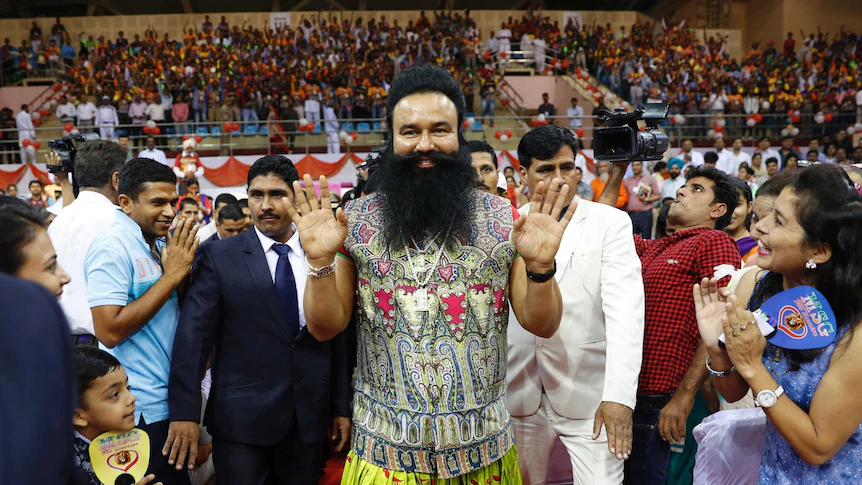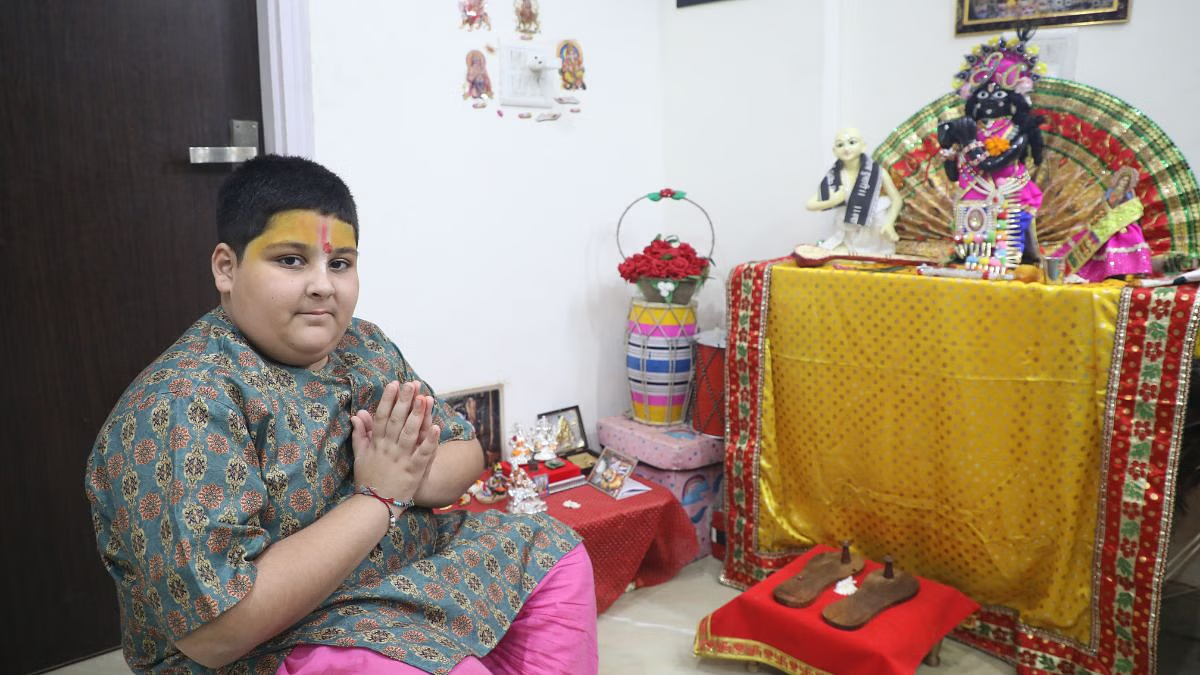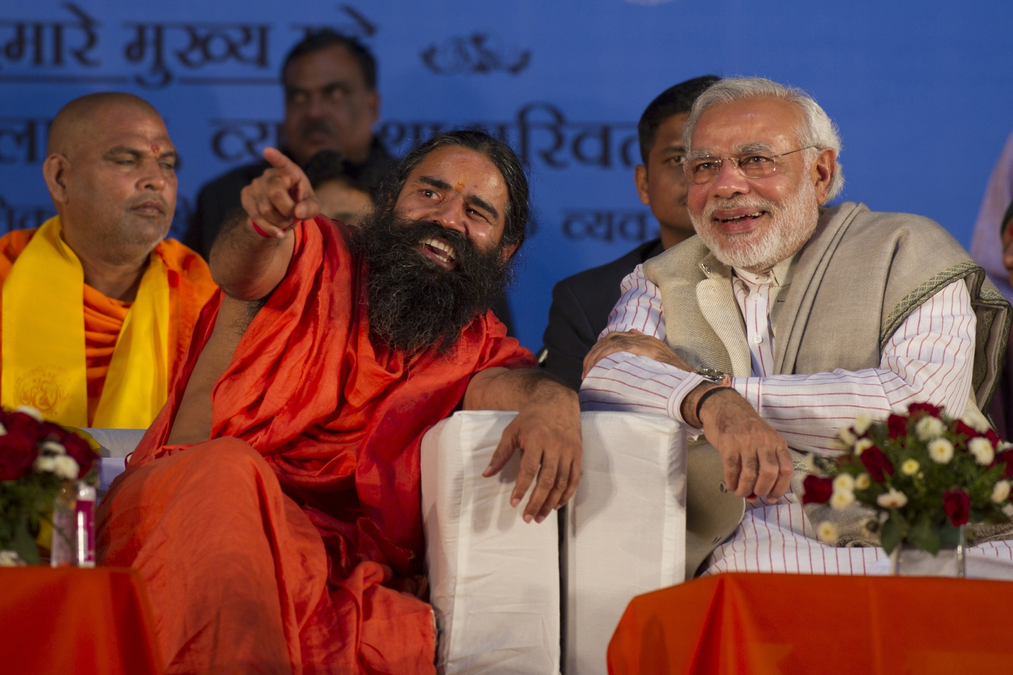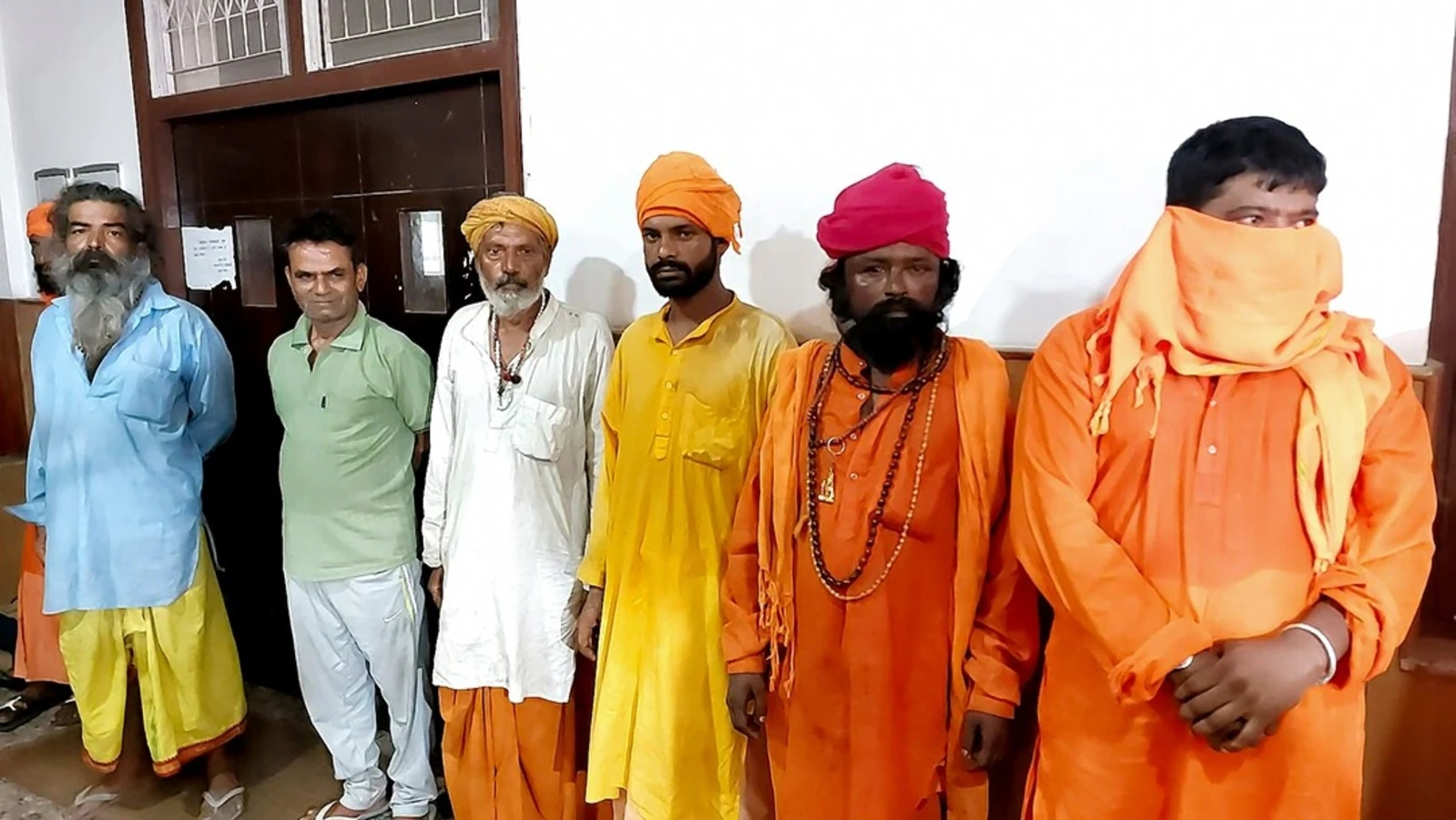India has always been a land of saints, sages, and spiritual teachers. The tradition of learning from gurus is ancient and deeply respected; true gurus were philosophers and guides who helped people rise above ignorance. Their teachings were marked by humility and wisdom, their lives by simplicity. But what passes off as “guruhood” in modern India bears little resemblance to this heritage. Instead of renunciation and service, there is a business model. Instead of humility, there is hunger for power and wealth. And instead of liberating people from illusion, today’s self-styled godmen trap followers in superstition and fear.
The so-called “baba industry” has become one of the country’s most shameful realities. It thrives on blind faith, desperation, and a carefully constructed image of divinity. Ashrams turn into empires, disciples into customers, faith into a business, and spirituality into a spectacle. These babas attract lakhs of people, build industrial empires, and maintain political patrons. They gain respectability through media coverage, endorsements by celebrities, and packaged charisma. Yet time and again, the mask slips, and the crimes behind the façade become impossible to hide. Rapes, assaults, child exploitation, financial scams, land grabbing, and even murders have come to light, showing how faith can be turned into a weapon against the very people who hold it dear.

The most dangerous element in all this is not the baba himself but the blind devotion that allows him to thrive. Andh-vishwas, superstition without reason, creates a perfect environment for exploitation. People come to these babas not in strength but in desperation: families struggling with illness, the unemployed hoping for miracles, the infertile woman longing for a child, the student searching for quick success. When social systems fail, when hospitals are unaffordable, when courts drag on for years, people search for shortcuts. And the baba arrives, promising instant solutions, blessings, and miracles. The robe, the flowing beard, the carefully chosen words—everything is calculated to inspire trust. Devotees surrender their decisions, their money, and sometimes even their dignity. Faith turns into submission, and submission makes exploitation easy.

The list of scandals involving godmen in India reads like a catalogue of crimes. Asaram Bapu, once adored by millions worldwide, is serving a life sentence for raping a minor girl. Investigations revealed not just one case but a pattern of abuse, with witnesses intimidated and even suspiciously killed. Yet, even as he sits in prison, many continue to worship him as a saint. Gurmeet Ram Rahim Singh of Dera Sacha Sauda, another flamboyant showman who turned religion into cinema and cult spectacle, was convicted of rape and linked to murders. When he was finally arrested, thousands of his followers went on a rampage, destroying property and killing people, just to protect their “guru.” These are not isolated stories; smaller scandals keep surfacing—children being abused in ashrams, women lured with promises of spiritual upliftment only to be assaulted, money from poor devotees flowing into private jets and luxury cars.

What makes this even more tragic is the involvement of children. In many of these so-called spiritual centres, children are raised in forced devotion, trained to chant, to beg, or even presented as “child babas.” Innocence is exploited to fuel the illusion of divine destiny. Bright futures are stolen by an industry that feeds on belief. Women face the heaviest burden—some of them silenced and shamed when they attempt to expose their gurus, others brainwashed into believing that abuse is some form of purification. The very spaces that are meant to give security and spiritual refuge turn into sites of fear and exploitation.
_1756456523.jpeg)
Behind every baba’s thriving empire lies money. Donations pour in, justified as “service to God.” Followers give up land, jewellery, savings, sometimes entire properties. Tax loopholes, offshore accounts, and fake charities allow crores to be siphoned off. The poor give their last rupee while the baba sits on a throne of gold, surrounded by armed guards. And this makes perfect sense, because these figures are not mere holy men; they are businessmen wearing saffron garb. Their corporations sell herbal medicines, health products, “spiritual” merchandise, and even premium blessings at fixed costs. Spirituality gets commodified, faith becomes profit, and religion, ironically, becomes the least important part of the organization.

The dangerous tie between these babas and politics keeps the cycle alive. Politicians openly seek their blessings at rallies and visit their ashrams because the baba can influence millions of votes. In return, the state looks away when crimes occur within ashram walls. Land grabs are legalized, law enforcement is pressured, and cases drag on until victims lose hope. This unholy nexus makes the baba untouchable—not because of divine power but because of earthly privilege. No spiritual leader in history sought such validation from kings and ministers. But today’s babas thrive precisely because they are the middlemen between faith and politics, exploiting both.

The social cost of this cannot be underestimated. Rational thinking is damaged. People delay essential medical treatments because they believe in miraculous cures. Families fall into debt because they donate to babas while neglecting their own survival. Women are silenced, justice is delayed, and society continues to worship the same criminals who exploit it. And every time one scandal breaks, another baba simply steps in to take his place, because the demand never ends. When celebrities touch their feet on live television, when reality shows invite them as honoured guests, the ordinary man watching at home is convinced that these figures must be real. The veneer of respectability is maintained, and the exploitation continues.

It is important here to reflect on why, despite so many exposes, people still follow them. Part of it lies in cultural conditioning: we are trained to never doubt holy men, taught that questioning them is an insult to religion itself. Part of it is fear—fear that going against the guru brings bad luck. And a big part of it is psychological comfort. People feel relief in believing that someone has divine control over their lives. Even if no miracle happens, the act of faith itself makes them feel less alone. This placebo-like effect gives power to the baba far more than any philosophy does. In short, people are not just following him; they are following their own desire to feel secure.

Yet, to mistake that comfort for truth is dangerous. True spirituality never silenced questioning. The saints of India—whether Kabir rejecting rituals, or Vivekananda calling for reason and education—never thrived on fear or authority. They asked people to think, to challenge blind ritual, and to strengthen society through action. What we see now is the opposite: a deliberate suppression of thought, the glorification of ignorance as devotion, the demand for unquestioning obedience.
If we are serious about breaking this cycle, India needs both social and institutional change. Strong laws must regulate religious organisations, demanding financial transparency and accountability. Cases of abuse must be pursued without fear of political pressure. Victims must be protected, not silenced. At the same time, we must return to the constitutional vision of building a scientific temper. Education should not only give literacy but also provide tools for critical thinking. From a young age, children must learn the difference between faith and superstition, between respect and surrender. Rationality should not be presented as the enemy of religion but as its true complement—because any belief that cannot tolerate questioning is nothing but fraud in disguise.

The biggest revolution, however, must happen inside every devotee’s heart. People must stop equating spirituality with celebrity and wealth. They must reject the idea that surrendering one’s mind is devotion. Faith does not mean blind acceptance; it means seeking truth with courage. The moment we stop bowing to men who demand worship, their power will vanish. Babas become powerful only when we give them our power.
India has given the world treasures of philosophy and spirituality: the Upanishads, the teachings of Buddha, the poetry of saints like Kabir, Mirabai, or Tukaram. All of them taught that God is within, that the path is inward, and that no external authority can liberate us. Do we really want to reduce that glorious tradition into circus shows of miracle cures, cheap theatrics, and ashrams guarded like fortresses? Every rupee we give, every clap we offer, makes the baba industry stronger. Every question we suppress, every doubt we silence, turns a fraud into a god.

It is time to stop. It is time to reclaim Indian spirituality from the clutches of criminals hiding behind saffron robes. This country does not need more men on thrones claiming to be gods. It needs thoughtful citizens, courageous questioners, and believers who understand that true devotion is not slavery but strength. Blind faith has already cost us enough in dignity, safety, and justice. If we do not unmask the baba industry now, we will hand over the next generation to the same cycle of exploitation. India deserves better. Faith deserves better. And true spirituality, stripped of greed and fraud, certainly deserves better.
With inputs from agencies
Image Source: Multiple agencies
© Copyright 2025. All Rights Reserved. Powered by Vygr Media.


























